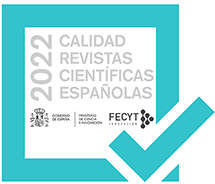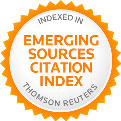Motor learning in Sport. A short stroll into a (un)familiar world. [Aprendizaje motor en el deporte: Un corto paseo por un mundo (des)conocido].
Resumen
It was in 1990 when Quest published an issue about “Usefulness of motor learning research for physical educators”. Several scholars tried to give an answer to this question, while motor learning researchers were in favour of this kind of scientific knowledge (Singer, 1990, Magill, 1990) pedagogues were more sceptical (Locke, 1990; Hoffman, 1990). Is it still a question that needs an answer? Does motor learning and expertise research useful for coaches and teachers? To quote J. von Uexkül “perhaps it would be a good idea to give a short stroll into the world of this (un)familiar world”. Recently the philosophy of mind and philosophy of sport has begun to focus on sport expertise (Breivik, 2007; Moe, 2005). Today we are witnessing a change of the explanatory model of motor skill acquisition. Computational and computer metaphor is rejected and dynamic, sensorimotor, extended and enactive positions are the fashionable approaches (Araujo, 2013; Aviles et al., 2014; Clark and Chalmers, 2011; Davids, 2015; Froese and Di Paolo, 2011; Noë, 2010). In some cases these positions are coincidences but not in others. All of the researchers are agree upon the need to consider the mutuality of human beings and their surroundings. The computer metaphor, which at the time was the paradigm of any explanation, is now beginning to be seen as an overcome idea(Moe, 2005; Varela, Thompson and Rosch, 2005). (Full text PDF)
------------------------------------------------------------------------
References/referencias
Araujo, D. (2013). The study of decision-making behavior in sport. RICYDE. Revista Internacional de Ciencias del Deporte, 31. 1-4.
http://dx.doi.org/10.5232/ricyde2013.031
Avilés, C.; Ruiz, L. M.; Navia, J. A.; Rioja, N., & Sanz, D. (2013). La pericia perceptivo-motriz y cognición en el deporte: del enfoque dinámico y ecológico a la enacción (Perceptual-motor and cognitive expertise in sport: From a dynamic and ecological approach to enaction). Anales de Psicología, 30, 2, 725-737.
http://dx.doi.org/10.6018/analeps.30.2.158611
Breivik, G. (2007). Skillful coping in everyday life and in sport: A critical examination of the views of Heidegger and Dreyfus. Journal of Philosophy of Sport, 34, 2, 116-134.
http://dx.doi.org/10.1080/00948705.2007.9714716
Clark, A. (2001). Mindware. An introduction to the philosophy of cognitive science. Oxford: Oxford University Press.
Clark, A., & Chalmers, D. (2011). La mente extendida. Oviedo: KRK Ediciones
Davis, K. (2015). Athletes and sports teams as complex adaptive system: A review of implications for learning design. RICYDE. Revista Internacional de Ciencias del Deporte, 39. 40-61.
http://dx.doi.org/10.5232/ricyde2015.03904
Froese, T., & Di Paolo, E.A. (2011). The enactive approach. Theoretical sketches from cell to society. Pragmatics & Cognition, 19, 1, 1-36.
http://dx.doi.org/10.1075/pc.19.1.01fro
Giblin, G.; Farrow, D.; Reid, M.; Ball, K., & Abernethy, B. (2015). Perceiving movement patterns: Implications for skill evaluation, correction and development. RICYDE. Revista Internacional de Ciencias del Deporte, 39. 5-17.
http://dx.doi.org/10.5232/ricyde2015.03901
Heidegger, M. (1926). Ser y Tiempo. Edición Digital. Disponible en: http://www.philosophia.cl
Hoffman, S.J. (1990). Relevance, application, and the development of an unlikely theory. Quest, 42, 2, 143-160.
Klemmer, S.; Hartmann, B., & Takayama, L. (2006). How bodies matter: Five themes for interaction design. DIS, June 26-28.
Locke, L.F. (1990). Motor learning is ignored: A case of Ducks, Naughty theories, and unrequited love. Quest, 42, 2, 134-142.
Magill, R.A. (1990). Motor learning is Meaningful for physical educators. Quest, 42, 2, 126-133.
Merleau-Ponty, M. (1985). Fenomenología de la Percepción. Barcelona: Planeta-Agostini
Moe, V. F. (2005). A Philosophical Critique of Classical Cognitivism in Sport: From information processing to bodily background knowledge. Journal of the Philosophy of Sport, 32, 155-183.
http://dx.doi.org/10.1080/00948705.2005.9714680
Noë, A. (2010). Fuera de la cabeza: Por qué no somos el cerebro: Y otras lecciones de la biología de la consciencia (Out of our heads: why you are not your brain, and other lessons from the Biology of Consciousness). Barcelona: Kairós.
Ortega, y Gasset, J. (1950). Obras Completas. 2ª ed.. Madrid: Revista de Occidente.
Passos, P., & Davids, K. (2015). Learning design to facilitate interactive behaviours in Team Sports. RICYDE. Revista Internacional de Ciencias del Deporte, 39. 18-32.
http://dx.doi.org/10.5232/ricyde2015.03902
Ruiz, L.M., Graupera, J.L., & García, V. (2014). Inteligencia contextual percibida en el deporte. Desarrollo y validación de un cuestionario. (Self-perceived contextual intelligence in sport. Development and validation of a questionnaire). Cultura, Ciencia y Deporte, 9, 27 211-224.
http://dx.doi.org/10.12800/ccd.v9i27.463
Singer, R.N. (1990). Motor learning research: Meaningful ways for physical educators or a waste of time? Quest, 42, 2, 114-125.
Stewart, J.; Gapenne, O., & Di Paolo, E. (2010). Enaction: Towards a new paradigm for cognitive science. Cambridge, MA: The MIT Press.
http://dx.doi.org/10.7551/mitpress/9780262014601.001.0001
Van der Kamp, J.; Duivenvoorden, J.; Kok, M. & Hilvoorde, I. van (2015). Motor Skill Learning in Groups: Some Proposals for Applying Implicit Learning and Self-Controlled Feedback. RICYDE-Revista Internacional de Ciencias del Deporte, 39, 33-47.
http://dx.doi.org/10.5232/ricyde2015.03903
Varela, F.; Thompson, E., & Rosch, E. (2005). De cuerpo presente: Las ciencias cognitivas y la experiencia humana. Barcelona: Gedisa.
Von Uexkül. J. (1951). Ideas para una concepción biológica del mundo. 2ª ed. Buenos Aires: Espasa-Calpe
Wilson, M. (2002). Six views of embodied cognition. Psychonomic Bulletin & Review, 9, 625-636.
http://dx.doi.org/10.3758/BF03196322
Palabras clave/key words
------------------------ 0 -------------------------
RICYDE. Revista Internacional de Ciencias del Deporte
![]()

Publisher: Ramón Cantó Alcaraz
ISSN:1885-3137 - Periodicidad Trimestral / Quarterly

